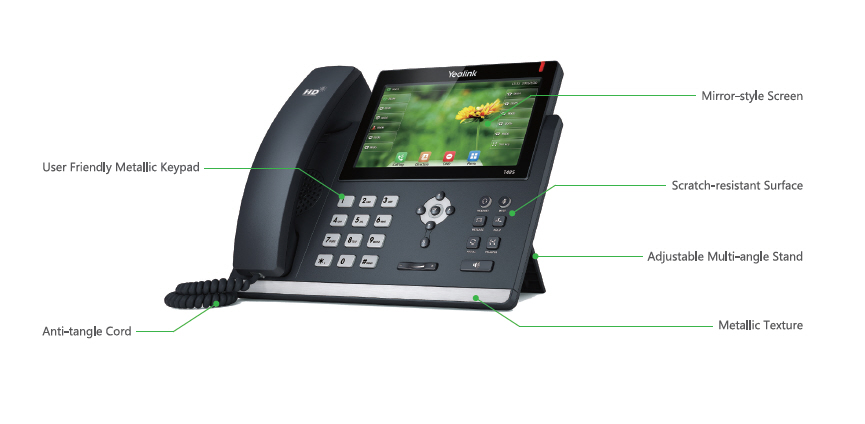Introduction
In today’s fast-paced world, businesses are constantly on the lookout for ways to cut costs without sacrificing quality. One of the most effective solutions that has emerged over the past decade is the adoption of Voice over Internet Protocol (VoIP) phone systems. These systems have revolutionized communication within organizations, offering a myriad of benefits ranging from cost savings to enhanced flexibility. If you’re contemplating a transition to a VoIP phone system, this article will guide you through why it’s not just a good idea but a smart investment for cost-conscious businesses.
VoIP Phone System: What Is It?
A VoIP phone system uses the internet to make and receive calls rather than traditional telephone lines. This technology converts your voice into digital data packets and transmits them over the web. Unlike conventional telephony, which relies on circuit-switched networks, VoIP leverages packet-switching methods, allowing for more efficient use https://soundcurve.com/voip-phone-service-encino-ca/ VoIP Phone System of bandwidth.
How Does It Work?
VoIP operates by using several key components:
Internet Connection: A stable broadband connection is essential for VoIP functionality.
VoIP Phones: These can be traditional phones connected with an adapter or dedicated VoIP devices.
VoIP Software: Applications such as softphones enable voice communication via computers and mobile devices.
VoIP Providers: Companies that manage the infrastructure needed for making calls over the internet.
What Are the Benefits of Using VoIP Phone Systems?
Adopting a VoIP phone system offers numerous advantages:
- Cost Savings: Lower call rates, especially for long-distance and international calls. Scalability: Easily add or remove lines based on business needs. Flexibility: Employees can work from anywhere with an internet connection. Enhanced Features: Access to advanced features like voicemail-to-email, call forwarding, and video conferencing.
Why Choose VoIP Phone Systems?
Choosing a VoIP phone system can feel overwhelming due to the sheer number of options available. However, understanding your business needs will help streamline this decision-making process.
Cost Efficiency
One of the standout features of VoIP is its cost efficiency. Traditional business phone systems can incur significant costs related to installation and ongoing maintenance. In contrast, VoIP systems often come with lower monthly fees and minimal setup costs.
A Closer Look at Cost Analysis
| Expense Type | Traditional Phone System | VoIP Phone System | |--------------------------|-------------------------|---------------------| | Initial Setup Costs | High | Low | | Monthly Service Fees | Moderate | Low | | International Calls | High | Very Low | | Maintenance Fees | High | Minimal |
Scalability Made Easy
As businesses grow, so do their communication needs. With traditional systems, adding lines can be cumbersome and expensive. However, with a VoIP phone system, scaling up or down is as simple as adjusting your subscription plan—no need for extensive rewiring or hardware changes.
Features That Set VoIP Phone Systems Apart
When considering whether to switch to a VoIP system, it's crucial to understand what features set it apart from traditional telephony.
Advanced Call Management
VoIP systems come equipped with advanced features such as:
- Call forwarding Call waiting Conference calling Auto-attendant Interactive Voice Response (IVR)
These features enhance customer experience and improve internal communications.
Mobility and Remote Work Capabilities
With remote work becoming increasingly prevalent, having a phone system that supports mobility is essential.
How Does This Work?
Employees can use their smartphones or laptops equipped with softphone applications to make calls from anywhere in the world without incurring extra charges.
VoIP Phone Systems: A Smart Investment for Cost-Conscious Businesses
When it comes down to it, investing in a VoIP phone system is not just about cutting costs; it's about future-proofing your business and enhancing productivity. The agility that comes with these systems allows businesses to adapt quickly in an ever-changing marketplace.
Customer Support Enhancements
Having robust customer support capabilities is crucial in today’s competitive landscape. Many providers offer integrated customer relationship management (CRM) tools that allow businesses to track interactions seamlessly.
Common Misconceptions About VoIP Phone Systems
Despite their many advantages, some myths still persist regarding VoIP technology:
Myth 1: Poor Call Quality
Many people believe that using internet-based services leads to poor call quality. In reality, high-speed internet connections provide crystal-clear audio comparable to traditional phones if sufficient bandwidth is available.
Myth 2: Complex Setup Process
While setting up some systems may require technical expertise initially, many user-friendly interfaces are designed specifically for ease of use and quick deployment.
Choosing the Right VoIP Provider
Selecting the right provider can be daunting given the multitude of options available in today’s market. Here are some factors you should consider:

Reputation Matters
Research potential providers thoroughly by checking online reviews and testimonials from other businesses within your industry.
Features That Fit Your Needs
Make sure that any provider you consider offers features aligned with your operational requirements—don’t pay for extras you won’t use!
Implementation Strategies for Your New System
Transitioning to a new communication platform involves planning and strategy execution:
Step 1: Assess Current Needs
Identify what features are essential based on employee roles—this could include everything from voicemail capabilities to video conferencing tools.
Step 2: Train Employees
Proper training ensures everyone understands how to maximize the new system's potential—consider hosting webinars or workshops during rollout phases.
Addressing Security Concerns With VoIP Systems
Many companies harbor concerns about security when it comes to switching communication platforms; however, there are ways to mitigate risks effectively:
Encryption Technologies
Choose providers that offer end-to-end encryption capabilities—this ensures all communications remain secure even when transmitted over public networks.
The Future Outlook on VoIP Technology
As technology continues evolving at a rapid pace, so does the landscape of communication solutions like VoIP. Emerging trends include artificial intelligence (AI) integration into call routing processes and improved analytics features helping businesses make data-driven decisions regarding their communication strategies.

FAQs About VoIP Phone Systems
What is a cloud-based VoIP phone system? Cloud-based means that your services run over the internet rather than on local servers; this allows easier management and access remotely.

How does pricing compare between traditional phones vs. VoIP? Generally speaking, pricing favors VoIP significantly due primarily due low monthly fees coupled with minimal installation charges compared against legacy systems.
Can I keep my existing number when switching? Yes! Most providers offer number porting services so you don’t have disruption during transition periods.
What happens during power outages? Depending upon set-up configurations users may lose service unless they have battery backups integrated into their network setups enabling temporary functionality until power restores.
Are international calls cheaper with a VOiP system? Absolutely! Most plans include competitive international rates far below those charged by traditional carriers providing substantial savings opportunities especially prevalent among global companies needing reach across borders regularly.
Is training required when transitioning? While basic familiarization should suffice initially formalized training sessions help employees utilize full capabilities efficiently which ultimately enhances overall productivity levels throughout operation cycles!
Conclusion
In summary, adopting VoIP Phone Systems represents not just an opportunity for cost savings but also provides enhanced flexibility and scalability tailored specifically towards modern business demands today! By considering all aspects discussed—from fundamental concepts surrounding functionality down through specific feature sets—you’ll find yourself equipped with knowledge necessary making informed choices beneficial both immediate future operations while paving pathways toward sustainable growth long-term endeavors!
Invest in VoIPs now—and witness firsthand how transformative this technology proves itself within organizational frameworks moving forward!